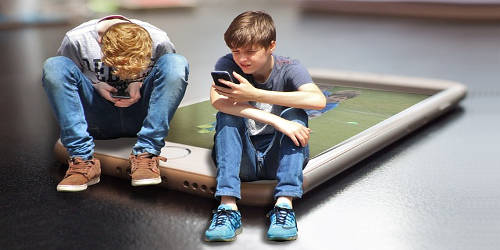This is not the first time we've heard about it, but a news story that came out just recently comes back to the very timely and sensitive topic of the increase in the last decade of mental disorders among young boys caused by too much smartphone use and lack of sleep.
Research published in the Journal of Abnormal Psychology reveals how the combination causes psychiatric disorders such as anxiety and depression among very young boys.
The study was conducted by Jean Twenge, author of the book "iGen" and professor of psychology at San Diego State University; it involved more than 200,000 adolescents aged 12-17 between 2005 and 2017, and nearly 400,000 adults aged 18 or older for a period from 2008 to 2017.
Graziano Pinna, a neuroscientist at the University of Illinois at Chicago, explained how this study highlights that, cultural conditioning such as technological abuse and sleep deprivation can have very deleterious effects on the developing brains of teenagers.
"The problem has pandemic dimensions," he says, "and it will be necessary to develop targeted interventions and better understand how digital communication promotes mood disorders or even suicidal ideation."
"We need to reintroduce traditional face-to-face socialization channels by limiting the use of smartphones, preventing them from interfering with the sleep, invaluable for the developing brains of young people," Pinna concludes; "so no phones or tablets in the bedroom at night and turn them off at least an hour before bedtime."
In order to try to be able to limit the damage that the impact of technologies has on adolescents' behavior and mental health, the example that parents and older siblings can set is crucial, and above all, it is very important to offer them viable alternatives such as reading paper books and magazines, a passion for music and art, spending quality time with family, and sports.
Sources: ansa.co.uk e quotidianosanita.it





